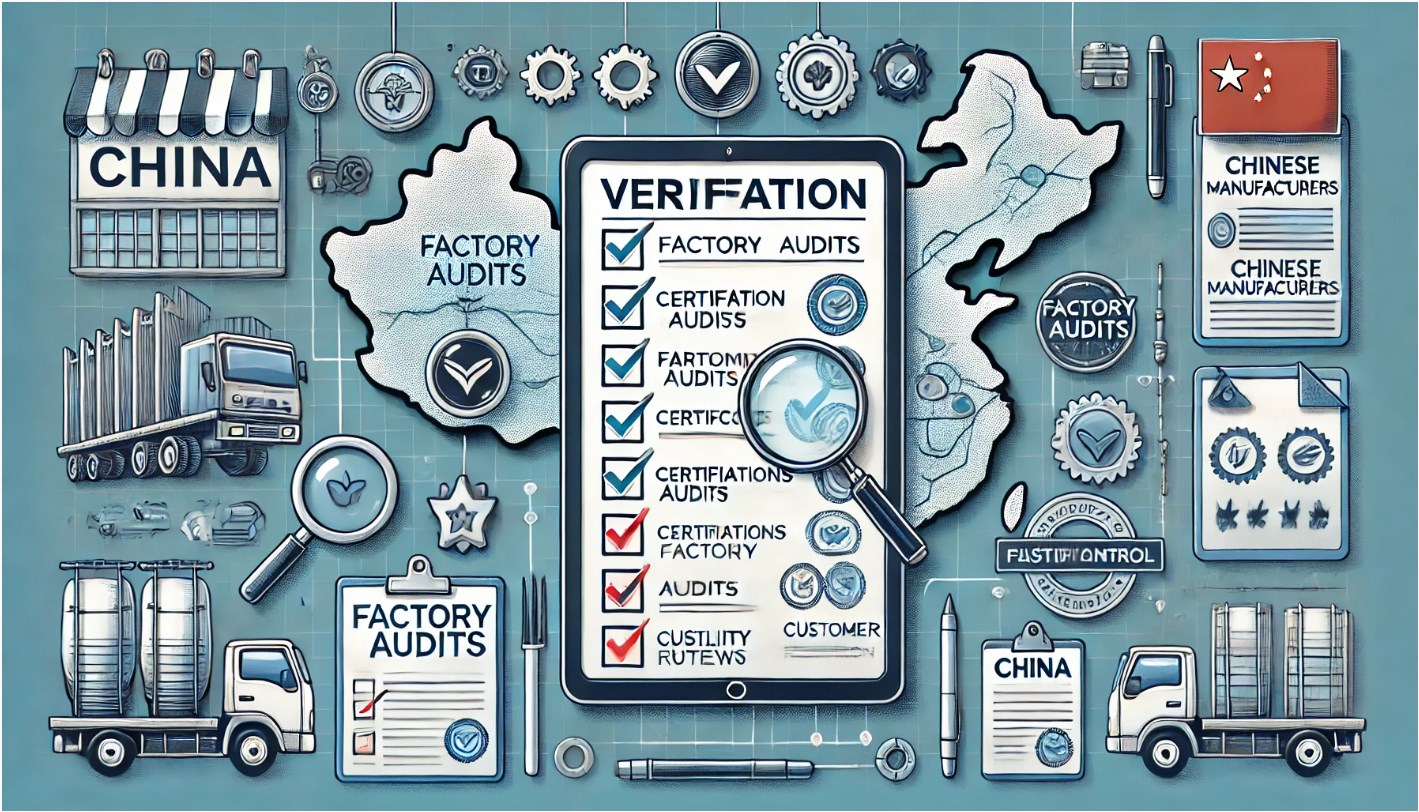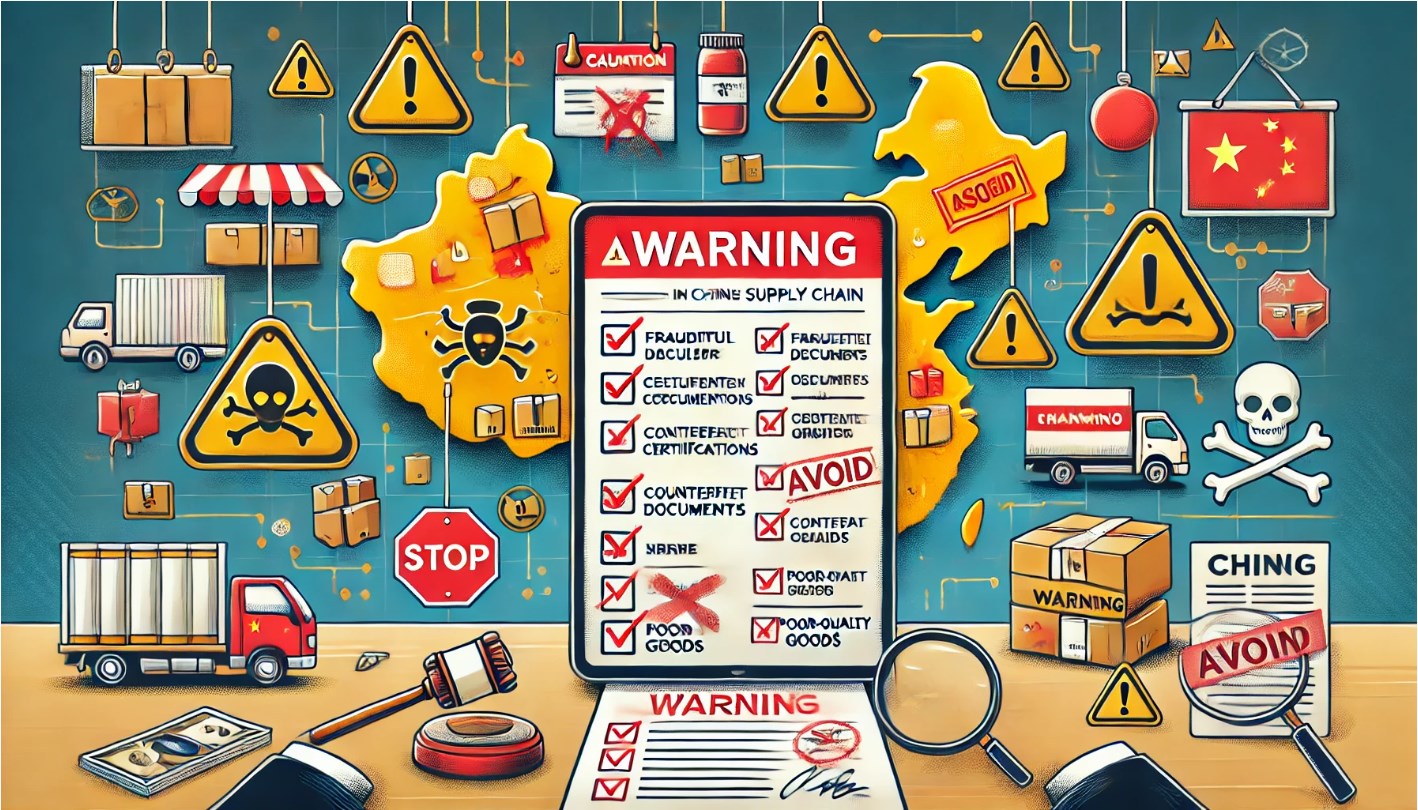When sourcing products from China, one of the most important decisions a buyer needs to make is choosing the right type of manufacturer. China is known for its diverse manufacturing landscape, offering a wide range of manufacturers with different capabilities, scales, and specialties. Each type of manufacturer offers unique advantages and challenges, and the choice you make will have a significant impact on the quality, cost, and reliability of your products.
This guide explores the different types of Chinese manufacturers, the factors to consider when choosing between them, and how to make the right decision for your business needs. By understanding the key differences between various manufacturer types, you can make informed decisions that align with your business goals.

Types of Chinese Manufacturers
Original Equipment Manufacturers (OEM)
Characteristics of OEMs
Original Equipment Manufacturers (OEMs) are factories that produce products based on the buyer’s specifications, design, and requirements. OEMs provide a high level of customization, allowing buyers to create unique products that meet their specific needs. The buyer typically provides detailed design files, and the OEM uses their production capabilities to bring the product to life.
OEMs are ideal for businesses that want to differentiate themselves in the market with proprietary products. Working with an OEM provides flexibility in terms of design and features, which is crucial for building a unique brand identity.
When to Choose an OEM
OEMs are best suited for businesses that have a specific product idea or design and want to maintain control over branding and product differentiation. They are particularly useful for startups and established companies looking to develop unique products that cannot be easily copied by competitors.
However, working with an OEM may require more initial investment in product development, and the buyer must have a clear understanding of the design specifications and production requirements.
Original Design Manufacturers (ODM)
Characteristics of ODMs
Original Design Manufacturers (ODMs) produce products that are designed by the manufacturer but can be rebranded by the buyer. ODMs provide a catalog of pre-existing designs that buyers can choose from and customize to suit their needs. Customizations may include branding, packaging, and minor changes to the product’s appearance or features.
ODMs allow buyers to take advantage of existing product designs and leverage the manufacturer’s expertise in product development. This reduces the time and cost involved in bringing a new product to market, as the buyer does not need to develop a product from scratch.
When to Choose an ODM
ODMs are ideal for businesses that want to enter the market quickly with a proven product. If you need a faster time-to-market and have limited resources for product development, an ODM can be a good choice. By using an existing design, you can focus on branding and marketing rather than spending time and money on product development.
However, ODMs offer less flexibility than OEMs in terms of customization, and the product may not be as unique, as other buyers may also have access to the same designs.
Contract Manufacturers (CM)
Characteristics of Contract Manufacturers
Contract Manufacturers (CMs) provide production services to buyers who provide their own designs, materials, and components. CMs focus solely on the manufacturing aspect, while the buyer retains full control over the design and supply chain. Contract manufacturers are responsible for executing the production process as specified by the buyer, using their existing facilities and workforce.
Contract manufacturers are a good option for businesses that already have a well-defined product design and supply chain but need to outsource production due to capacity constraints or cost advantages.
When to Choose a Contract Manufacturer
Contract manufacturers are best suited for businesses that need reliable production capabilities but want to maintain control over the supply chain and sourcing of materials. CMs can help scale production without investing in additional facilities, making them an attractive option for companies looking to expand capacity.
While CMs provide significant control over the production process, they require detailed oversight and management from the buyer, as the buyer is responsible for sourcing materials and ensuring that the production meets quality standards.
Trading Companies
Characteristics of Trading Companies
Trading companies act as intermediaries between the buyer and the manufacturer. They help facilitate the sourcing process by managing communication, quality control, and logistics. Trading companies often work with a network of factories, enabling buyers to access multiple products from different manufacturers.
Trading companies are particularly helpful for buyers unfamiliar with sourcing from China, as they simplify the process by acting as the buyer’s representative. They also help reduce language barriers, cultural differences, and challenges associated with managing relationships with multiple suppliers.
When to Choose a Trading Company
Trading companies are ideal for small businesses or buyers who do not have the resources to manage sourcing directly. They provide convenience by handling all aspects of the procurement process, from identifying suppliers to negotiating contracts.
However, working with a trading company may result in higher costs, as they charge a commission for their services. Additionally, buyers have less direct control over the manufacturing process, which can impact product quality.
Wholly Foreign-Owned Enterprises (WFOEs)
Characteristics of WFOEs
Wholly Foreign-Owned Enterprises (WFOEs) are factories that are fully owned by foreign investors. WFOEs provide foreign buyers with the ability to set up their own manufacturing facility in China and maintain complete control over production, quality, and supply chain management. They are typically established by companies that have the capital and experience needed to manage their own production facility in China.
WFOEs offer the advantage of eliminating concerns about IP theft and quality control, as the buyer retains full ownership and oversight of the facility.
When to Choose a WFOE
WFOEs are best suited for large enterprises that need to maintain complete control over the entire production process. Establishing a WFOE requires a significant capital investment and involves navigating China’s regulatory environment, which can be challenging for smaller businesses.
WFOEs provide full autonomy, which is beneficial for businesses that prioritize quality, IP protection, and supply chain management. However, setting up a WFOE can be time-consuming and costly, making it suitable primarily for businesses with the necessary financial resources and expertise.
Factors to Consider When Choosing Between Manufacturers
Product Complexity and Customization Needs
Level of Customization Required
The type of manufacturer you choose will depend on the level of customization needed for your product. If your product requires a unique design or custom features, an OEM or WFOE may be the best option. OEMs provide the flexibility to create custom products, while WFOEs allow you to maintain complete control over every aspect of production.
On the other hand, if you are looking for a relatively simple product that requires minimal customization, an ODM may be sufficient. ODMs provide pre-designed products that can be quickly customized with your branding.
Complexity of Product Design
Complex products that require sophisticated engineering or specialized materials may be better suited to OEMs or contract manufacturers. These manufacturers have the technical capabilities to produce complex products according to detailed specifications, ensuring that quality standards are met.
Production Volume and Lead Time
Minimum Order Quantities (MOQs)
Different types of manufacturers have different minimum order quantity (MOQ) requirements. OEMs and CMs may require higher MOQs due to the level of customization involved and the cost of setting up production. If your production volume is relatively small, an ODM or trading company may be a better fit, as they often have lower MOQ requirements.
Lead Time Considerations
The lead time required for production will also influence your choice of manufacturer. ODMs generally have shorter lead times, as they produce products based on existing designs. OEMs and CMs may have longer lead times, as they need to produce custom products based on the buyer’s specifications.
Consider your production schedule and timeline requirements when selecting a manufacturer. If time-to-market is a critical factor, an ODM may be the best choice.
Intellectual Property (IP) Protection
Risks of IP Theft
IP protection is a significant concern when sourcing from China. If your product involves proprietary technology or unique designs, it is important to choose a manufacturer that respects IP rights. OEMs and WFOEs offer greater control over IP, as they provide opportunities to safeguard designs and limit access to proprietary information.
Trading companies and ODMs may present a higher risk of IP theft, as more parties have access to the product’s design. Consider the sensitivity of your IP when choosing a manufacturer and take steps to protect your intellectual property through legal agreements and registrations.
Legal Agreements and Contracts
To protect your intellectual property, it is important to establish clear legal agreements with your chosen manufacturer. NDAs (Non-Disclosure Agreements) and manufacturing contracts that include IP protection clauses can help mitigate risks. Working with an experienced legal counsel who understands Chinese IP law is recommended.
Cost Considerations
Upfront Costs
Different types of manufacturers involve different upfront costs. OEMs and WFOEs typically require higher upfront investments due to the cost of product development, tooling, and production setup. Contract manufacturers may also involve upfront costs, particularly if specialized equipment or materials are required.
ODMs and trading companies generally have lower upfront costs, making them a more attractive option for businesses with limited budgets or those looking to minimize financial risk.
Total Cost of Ownership
When choosing a manufacturer, it is important to consider the total cost of ownership, including production costs, shipping, quality control, and any potential costs associated with quality issues or product recalls. While some manufacturers may offer lower production costs, the risk of poor quality can result in higher costs in the long run.
Weighing the overall costs, including both direct and indirect costs, will help you make a more informed decision about which manufacturer is the best fit for your business.
Conducting Due Diligence on Potential Manufacturers
Assessing Production Capabilities
Factory Visits and On-Site Assessments
Conducting on-site assessments of potential manufacturers is an essential step in the due diligence process. Visiting the factory allows you to assess the production facilities, quality control processes, and overall capabilities of the manufacturer. Observing the factory firsthand provides valuable insights that cannot be obtained through remote evaluations.
If visiting the factory in person is not possible, consider working with a supplier verification agent to conduct an on-site assessment on your behalf. These agents can provide detailed reports on the factory’s capabilities, equipment, and quality management systems.
Capacity to Scale Production
It is important to assess whether the manufacturer has the capacity to scale production as your business grows. Choose a manufacturer that can accommodate increases in production volume without compromising on quality or lead time. Understanding the manufacturer’s capacity for growth helps ensure that your supply chain remains flexible and reliable.
Verifying Quality Standards
Quality Management Systems
A reliable manufacturer should have a robust quality management system in place. Assess whether the manufacturer follows international quality standards, such as ISO certifications, and whether they have established procedures for quality control throughout the production process.
Ensuring that the manufacturer has a strong quality management system helps minimize the risk of defects and ensures that your products consistently meet your standards.
Product Testing and Certifications
Verify that the manufacturer is capable of performing product testing and certifications required for your industry. For products that need to meet specific safety standards or regulatory requirements, the manufacturer should have the necessary testing equipment and capabilities to comply with relevant certifications.
Supplier Reputation and Reliability
Checking References and Customer Feedback
Before selecting a manufacturer, check their references and seek feedback from other customers who have worked with them. Reputable manufacturers should be willing to provide references, and speaking with previous clients can provide valuable insights into the manufacturer’s reliability, quality, and communication.
Assessing Financial Stability
Evaluating the financial stability of a manufacturer is essential to avoid disruptions in your supply chain. A financially stable manufacturer is more likely to meet production requirements, avoid delays, and remain a reliable partner in the long term. Request financial records or use third-party services to assess the manufacturer’s financial health.






